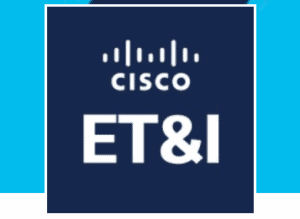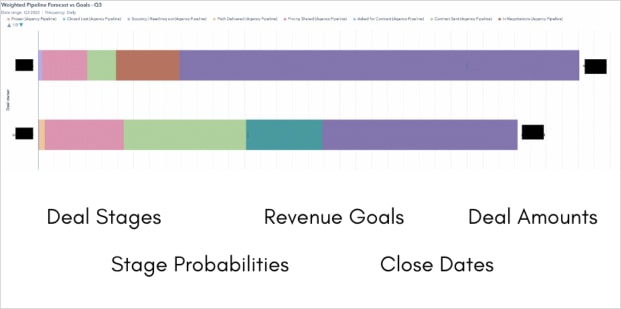RevOps As A Service
Watch!
Revenue Operations (RevOps) In a Nutshell
B2B tech companies need technology stacks & data to operate. The relatively new function of RevOps owns the tech stack and the data flowing through it, working closely with the marketing, sales and customer success teams. RevOps people design, implement and operate processes which tie all these functions, and teams, together.
In other words, RevOps is responsible for the operational aspects of generating revenue for the organization.
Business challenges
What happens when RevOps foundations aren’t in place? Not a whole lot of good stuff. Here are common scenarios. Any of these ring a bell?
- Hubspot is in place (YAY!) but is a mess or its owners died horrible deaths or simply left the company
- There’s no CRM; management uses spreadsheets & post-it notes to run the business
- A CRM is in place, but it’s badly configured, resulting in useless heaps of data and awkward moments during QBRs
- Marketo or Pardot are in place, but they’re a nightmare to work with and provide too little value
- There is a proper tech stack in place, but not enough hands on deck to manage it
Envy will help you with:
If you’re lucky enough to have team members in-house with deep knowledge of how to run Revenue Operations on HubSpot AND the capacity to fully meet your marketing, sales and service needs – congratulations, you’re in excellent, but small, company of formidable businesses.
More likely, you’re here because you are thinking about:
- Optimizing, or repairing, your existing HubSpot implementation
- Replacing a resource that used to own HubSpot for you but is no longer available, for whatever reason
- Extending your Ops team to meet growth- and scale-related challenges
- Outsourcing non-core HubSpot RevOps capabilities
Whatever the reason you’re looking for HubSpot professionals to partner with, you’ve come to the right place. When you work with us, you immediately gain access to:
- Experienced ops experts who know a thing or twenty about what B2B companies like yours need from RevOps, and how best to make HubSpot address those needs
- Certified HubSpot specialists who can perform even the most complex tasks on the software
Envy always consult and lead with guidelines for healthy operational processes, in areas such as:
- Business Process Design: from lead lifecycle management, to deal pipelines; from Target Account & ICP definitions, to Contact & Account Scoring models; from simple Lead Routing rules, to complex nurture programs – we’ll suggest, customize and implement the right process for your needs.
- Prospect & Customer Journey Design: if RevOps is one side of the coin, Customer Experience is the other. A major goal of having HubSpot is to power excellent experiences, timed perfectly to the buyer’s journey.
- Data Ops: our marketing & sales tools are only as good as the data flowing through them. Data Ops is the science of keeping data clean, accurate and accessible, for both customer experience programs and analysis.
- Campaign Ops: allowing you to run marketing programs at scale is what HubSpot is all about. But you need experienced hands at the helm to efficiently manage all the moving parts in the marketing machine: emails, landing pages, workflows, contact and company lists, reports, campaigns, and the list goes on.
- Process Design & Automation: RevOps people are masters of the process. Theirs is the responsibility to deeply understand how technology & data can play together to meet the needs of marketing, sales and customer service; design the processes that tie them most efficiently, and implement them to perfection.
- Reporting Ops: a core part of the RevOps function is to enable all levels of management to have a clear view of the performance of the various revenue producing departments.
- Tech Stack Planning & Integration: as the operational arm of revenue management, RevOps are responsible for ensuring the right technologies are selected to optimally serve the needs of the business.
CLIENT FLATTERY
Awesome companies we’ve helped grow








Measuring RevOps Success
RevOps success are:
Annual Recurring Revenue:
This is all about how much recurring revenue is coming your way, based on yearly subscriptions.
Sales Cycle Time:
The total number of days it takes for a deal to close, divided by the total number of closed deals
Customer Lifetime Value:
See what a customer is worth to your business over the complete course of your relationship.
Customer Turnover Rate:
Get the exact number of customers lost over a certain period of time
Win Rate:
Let’s talk about success in precise numbers – what is your sales team generating over a certain period?
The Four Pillars of RevOps:Processes, Data, Tools and People
Processes:
Collaboration relies on first putting the right processes in place to establish accountability and trust within teams. These processes typically focus on:
- Achieving shorter sales cycles,
- Improving customer retention,
- Increasing the volume of upsells, etc.
Data:
Creating a clean and accurate database that encompasses the company’s revenue pipeline from start to finish.
Data collected by each department for its own purposes at various stages of the customer journey is also useful to other departments, so it makes sense that it should be shared throughout the organization.
With one unified source of data, team members can identify how they impact the pipeline (either directly or indirectly) which is an essential foundation for subsequent optimization and growth.
Tools:
Process management and automations are key to effective RevOps alignment. From evaluation, procurement, and integration of existing systems, to ongoing administration – RevOps optimizes the company’s tech stack to support its team, activate its data, and achieve predictable revenue growth.
A unified revenue operations platform is key.
People:
RevOps consolidates historically-siloed operations teams, so the RevOps team serves all revenue-generating business units, including:
- Sales Operations
- Marketing Operations
- Customer Success Operations
- Systems
Benefits of Revenue Operations (Data Shows It’s Not Just A Fad!)
The main benefit for companies that invest in RevOps strategy and in the revenue operations platforms that facilitate it, is that their revenue-boosting efforts generally work more smoothly and efficiently. This is, because the centralized oversight of a dedicated RevOps team allows them to provide better systems and deeper solutions.

Research from Boston Consulting Group has found that companies that use RevOps to align all of their go-to-market functions outperform those that don’t, with their sales productivity increasing by 10% – 20%.
Other benefits include a 100% -200% increase in digital marketing ROI, a 10% increase in lead acceptance, 15% to 20% increase in internal customer satisfaction and 30% reduction in GTM expenses.
Envy, HubSpot Diamond Partner
Envy uses HubSpot as our revenue operations platform of choice because it’s an incredibly powerful CRM platform with built-in connected applications for marketing, sales and customer service. This gives us visibility over all the relevant departments, allowing us to help our customers optimize their customer journey more efficiently, and to implement a RevOps strategy that streamlines their operations to maximize revenue.